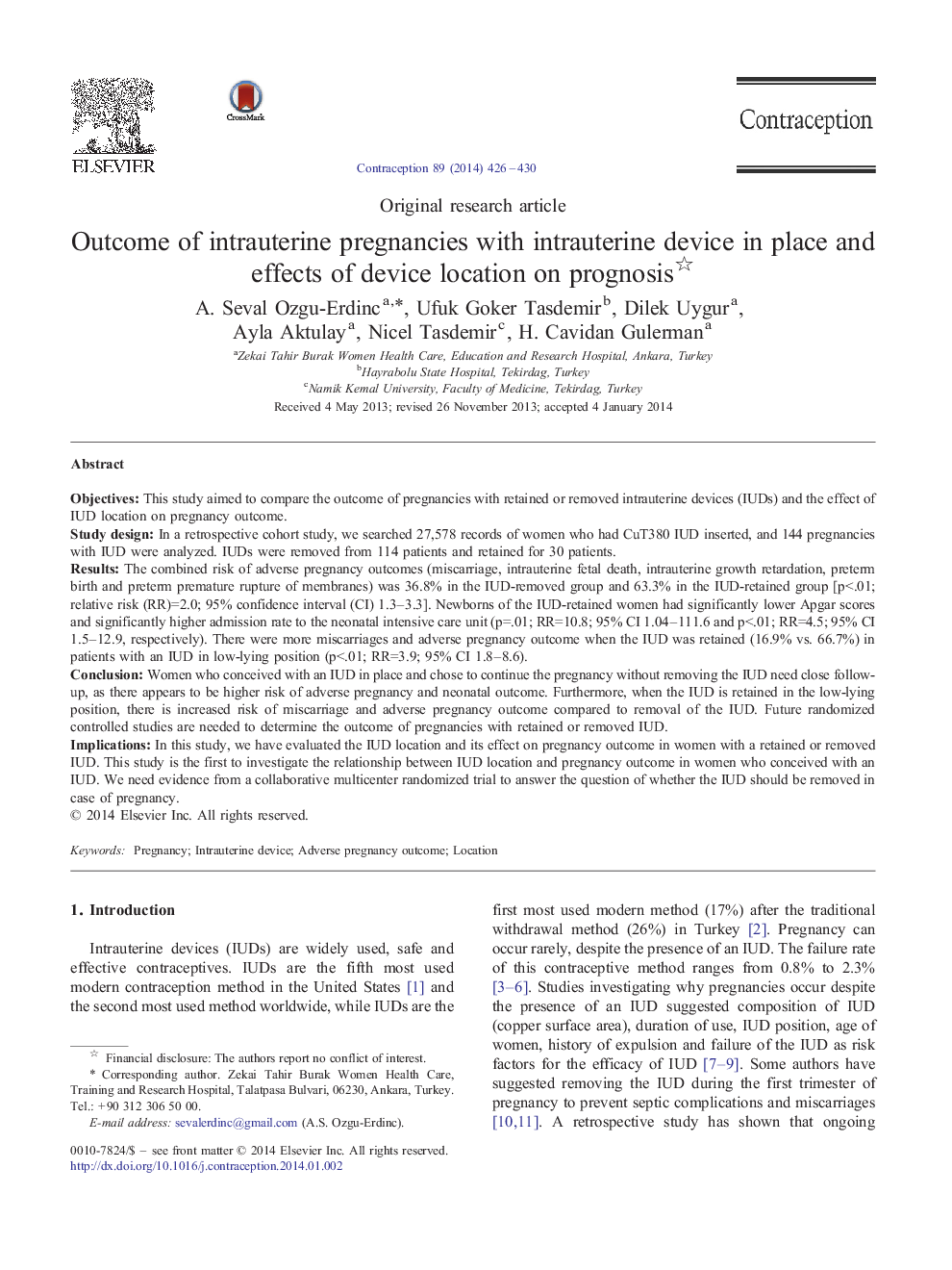| Article ID | Journal | Published Year | Pages | File Type |
|---|---|---|---|---|
| 3913121 | Contraception | 2014 | 5 Pages |
ObjectivesThis study aimed to compare the outcome of pregnancies with retained or removed intrauterine devices (IUDs) and the effect of IUD location on pregnancy outcome.Study designIn a retrospective cohort study, we searched 27,578 records of women who had CuT380 IUD inserted, and 144 pregnancies with IUD were analyzed. IUDs were removed from 114 patients and retained for 30 patients.ResultsThe combined risk of adverse pregnancy outcomes (miscarriage, intrauterine fetal death, intrauterine growth retardation, preterm birth and preterm premature rupture of membranes) was 36.8% in the IUD-removed group and 63.3% in the IUD-retained group [p<.01; relative risk (RR)=2.0; 95% confidence interval (CI) 1.3–3.3]. Newborns of the IUD-retained women had significantly lower Apgar scores and significantly higher admission rate to the neonatal intensive care unit (p=.01; RR=10.8; 95% CI 1.04–111.6 and p<.01; RR=4.5; 95% CI 1.5–12.9, respectively). There were more miscarriages and adverse pregnancy outcome when the IUD was retained (16.9% vs. 66.7%) in patients with an IUD in low-lying position (p<.01; RR=3.9; 95% CI 1.8–8.6).ConclusionWomen who conceived with an IUD in place and chose to continue the pregnancy without removing the IUD need close follow-up, as there appears to be higher risk of adverse pregnancy and neonatal outcome. Furthermore, when the IUD is retained in the low-lying position, there is increased risk of miscarriage and adverse pregnancy outcome compared to removal of the IUD. Future randomized controlled studies are needed to determine the outcome of pregnancies with retained or removed IUD.ImplicationsIn this study, we have evaluated the IUD location and its effect on pregnancy outcome in women with a retained or removed IUD. This study is the first to investigate the relationship between IUD location and pregnancy outcome in women who conceived with an IUD. We need evidence from a collaborative multicenter randomized trial to answer the question of whether the IUD should be removed in case of pregnancy.
